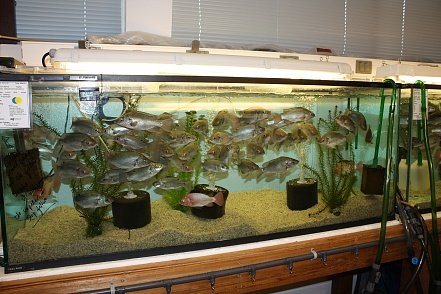Punkymom
Aquarium Advice FINatic
How long does it usually take for angel fish to reach full growth? I've had 2 for just over a year and while I've seen growth, it's not a whole lot, you know? Which is fine, but I was just wondering as I had an oscar before that got to full growth in like 9 months. TIA! BTW, my smaller one is about 1.5 in excluding fins (top to bottom) and the bigger one is about 2 or 3 in (they won't hold still, lol).

